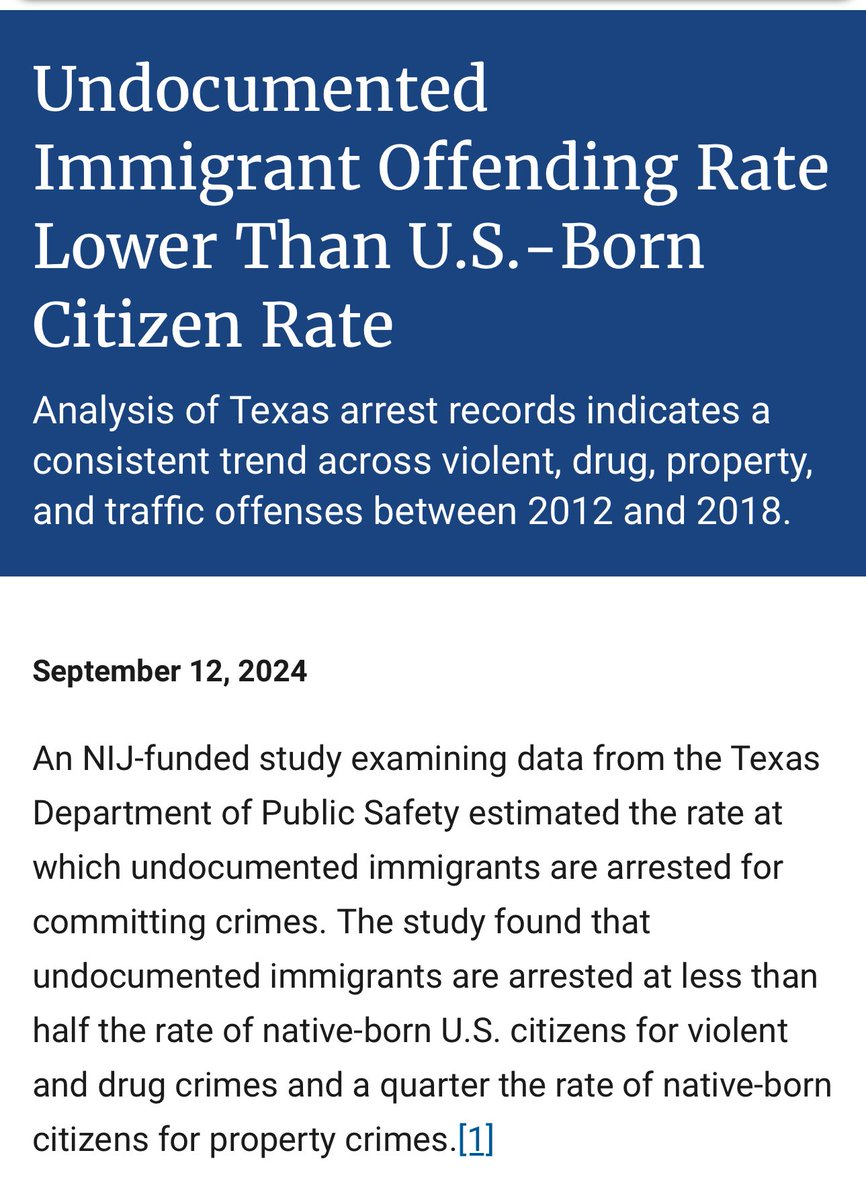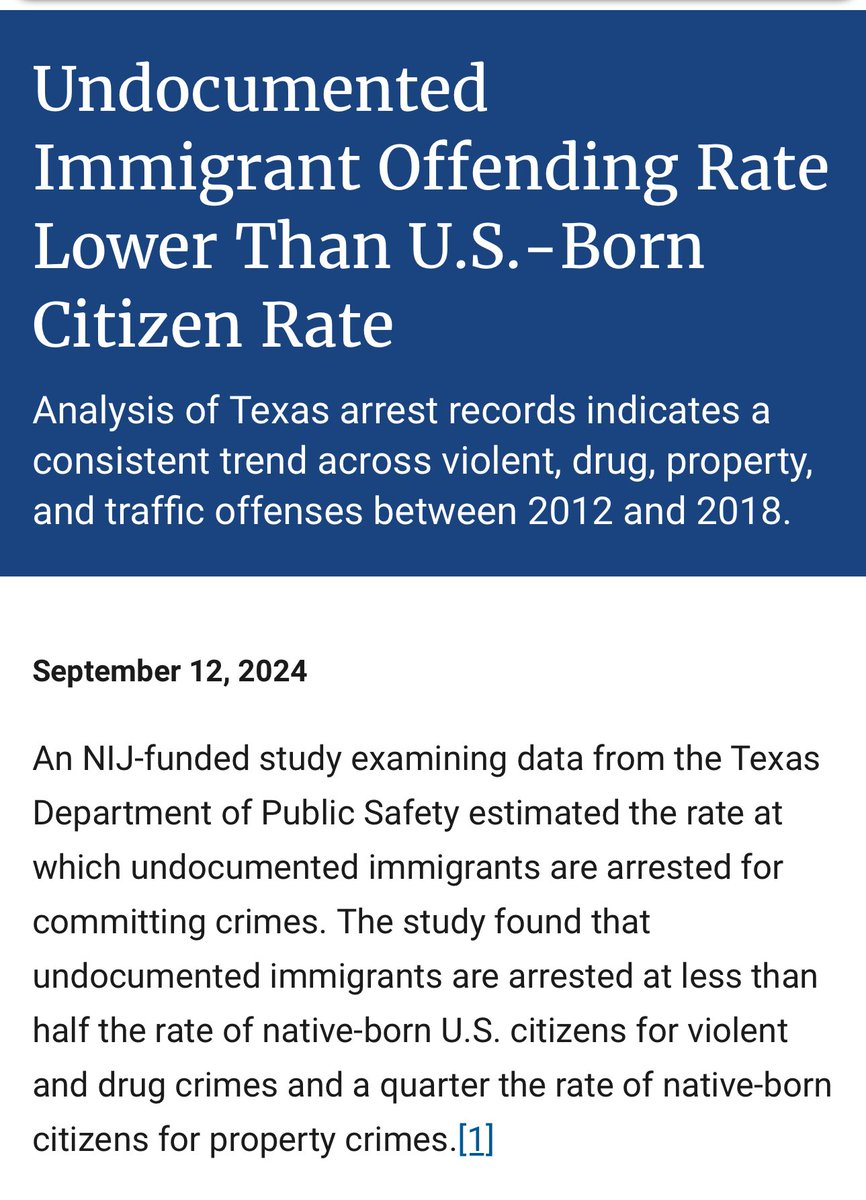Trump Admin Scrubs Evidence: Immigrants Safer than Citizens?
The Deletion of Evidence on Immigrant Crime Rates by the trump Administration
In a recent social media revelation, Phil Williams, an investigative journalist, highlighted a significant action taken by the Trump administration: the deletion of a webpage that summarized crucial data regarding crime rates among undocumented immigrants compared to native-born U.S. citizens. This webpage reportedly contained evidence indicating that undocumented immigrants are arrested for violent and drug crimes at less than half the rate of their native-born counterparts and a quarter of the rate for property crimes. This controversial deletion raises questions about transparency, public discourse, and the ongoing debate regarding immigration policies in the United States.
The Significance of the Deleted Data
The data previously available on the now-deleted webpage provided insights into the relationship between immigration status and crime. It challenged prevalent narratives that associate undocumented immigrants with higher crime rates. According to the deleted information, the arrest rates for undocumented immigrants were significantly lower than those of native-born citizens. This finding is critical for informing public opinion and policy decisions related to immigration enforcement and community safety.
By removing this webpage, the Trump administration may have aimed to suppress information that contradicted its political narrative. This action can be seen as part of a broader trend of manipulating information to influence public perception of immigration and crime. The implications of this deletion extend beyond mere data; they touch upon fundamental issues of trust in government, the media, and the role of factual evidence in shaping policy.
Context of the Immigration Debate
The immigration debate in the United States has been contentious for decades, often characterized by polarized opinions and conflicting narratives. Proponents of stricter immigration controls frequently argue that undocumented immigrants contribute to higher crime rates, citing anecdotal evidence and sensationalized media reports. Conversely, studies and analyses like the one referenced in the deleted webpage seek to provide a more nuanced understanding of the issue, emphasizing that immigrants, regardless of their legal status, are often less likely to commit crimes.
- YOU MAY ALSO LIKE TO WATCH THIS TRENDING STORY ON YOUTUBE. Waverly Hills Hospital's Horror Story: The Most Haunted Room 502
The deletion of the webpage adds another layer of complexity to this already heated debate. It raises concerns about the selective presentation of information and the potential consequences of undermining data-driven discussions about immigration. By obscuring evidence that contradicts prevailing narratives, the administration not only impacts public understanding but also the formulation of policies that affect millions of lives.
The Role of Media and Public Discourse
The incident underscores the critical role that media and public discourse play in shaping perceptions of immigration. Journalists and media outlets have a responsibility to investigate and present facts, especially on issues as significant and polarizing as immigration. The deletion of the webpage serves as a reminder of the challenges faced by journalists in obtaining and disseminating accurate information in a politically charged environment.
Social media platforms, such as Twitter, have become essential tools for journalists and the public alike to share information and hold government accountable. Phil Williams’ tweet, which brought attention to the deletion, exemplifies how social media can serve as a catalyst for discussion and advocacy. It highlights the importance of transparency and the need for citizens to remain vigilant and engaged in the political process.
Implications for Future Policy
The deletion of the webpage and the data it contained may have long-term implications for immigration policy in the United States. Policies based on misinformation or incomplete narratives can lead to misguided enforcement practices, discriminatory laws, and increased tensions between immigrant communities and law enforcement agencies.
As policymakers consider reforms in immigration law and enforcement, it is vital that they base decisions on comprehensive, factual evidence rather than political rhetoric. The public deserves access to accurate information that reflects the realities of crime and immigration in the country. This incident serves as a clarion call for advocates, researchers, and citizens to demand transparency and accountability from their government.
Conclusion: The Need for Transparency and Data Integrity
The deletion of the webpage summarizing evidence on undocumented immigrants and crime rates raises critical questions about transparency, accountability, and the integrity of public information. As the immigration debate continues, it is essential for all stakeholders—government officials, journalists, and citizens—to prioritize fact-based discussions and ensure that accurate data informs policy decisions.
The implications of this incident extend beyond the realm of immigration; they touch upon the fundamental principles of democracy and the importance of an informed electorate. In an era where misinformation can spread rapidly, the need for reliable data and transparency has never been more crucial. As we move forward, let us advocate for policies grounded in truth and foster an environment where all voices can be heard and respected.
By shedding light on these issues, we can work toward a more informed, compassionate, and just society that recognizes the contributions of all individuals, regardless of their immigration status.

DELETED: Trump administration deleted a webpage summarizing evidence that “undocumented immigrants are arrested at less than half the rate of native-born U.S. citizens for violent and drug crimes and a quarter the rate of native-born citizens for property crimes.” pic.twitter.com/CqNwn20yw9
— Phil Williams (@PhilNvestigates) June 5, 2025
DELETED: Trump administration deleted a webpage summarizing evidence that “undocumented immigrants are arrested at less than half the rate of native-born U.S. citizens for violent and drug crimes and a quarter the rate of native-born citizens for property crimes.”
The topic of immigration has always been a hot-button issue in the United States. It stirs up all kinds of emotions, debates, and discussions. One particularly striking development was the deletion of a webpage by the Trump administration that presented evidence regarding the arrest rates of undocumented immigrants compared to native-born U.S. citizens. The deleted webpage claimed that “undocumented immigrants are arrested at less than half the rate of native-born U.S. citizens for violent and drug crimes and a quarter the rate of native-born citizens for property crimes.” This deletion raises questions about transparency and the narrative surrounding immigration in America.
Understanding the Context of the Deleted Webpage
When the Trump administration came into power, its stance on immigration was clear: it aimed to tighten regulations and increase security. The webpage in question provided statistical evidence that contradicted some of the prevailing narratives about undocumented immigrants being inherently more prone to crime. By highlighting that undocumented immigrants were arrested at lower rates for violent and property crimes, the webpage aimed to challenge the stereotype that immigrants are more dangerous than native-born citizens.
The timing of the deletion also deserves attention. It came during a period of heightened immigration enforcement and public discourse around border security. With emotions running high and discussions often lacking nuance, the existence of data that contradicted the dominant narrative could be seen as politically inconvenient.
The Evidence Behind the Statistics
Research has consistently shown that immigrants, including undocumented ones, are often less likely to commit crimes than their native-born counterparts. A comprehensive study published in the *Criminology* journal found that neighborhoods with higher immigrant populations tend to have lower crime rates. This doesn’t just apply to violent crimes; property crimes also see a decline in areas with significant immigrant communities.
The findings from various studies suggest that immigrants contribute positively to society in many ways, and the narrative that they are more criminally inclined is not supported by the data. The deleted webpage served as a reminder of this evidence, a fact that many advocates for immigration reform have long argued.
Why Does It Matter?
The deletion of this webpage is significant for several reasons. First, it raises concerns about transparency in government. When information is selectively deleted or hidden, it undermines the public’s trust in institutions. Citizens have a right to access data that informs important decisions, especially regarding policies that affect millions of lives.
Moreover, this deletion reflects broader issues of how immigration is framed in public discourse. It highlights the struggle between different narratives surrounding immigration – those that paint immigrants as a burden versus those that celebrate their contributions to society. When the evidence supporting the latter is removed from public view, it can skew public perception and policy.
The Role of Media in Shaping Perceptions
Media coverage plays a vital role in shaping public perceptions of immigration. Often, news outlets focus on sensational stories that capture attention but may not provide a complete picture. For instance, stories about crimes committed by undocumented immigrants can dominate headlines, overshadowing the more significant body of evidence showing that immigrants are less likely to commit crimes.
This phenomenon can create a cycle where negative perceptions lead to harsher policies, which in turn can result in more negative stories. It’s a complex interplay that requires a more nuanced approach to reporting on immigration issues.
What Happens Next?
As more individuals become aware of the deleted webpage and its implications, there may be increased pressure on the government to provide clear, accessible information on immigration and crime. Advocates for immigrant rights are likely to use this incident to push for more transparency and to highlight the importance of evidence-based policy-making.
Moreover, as society becomes more interconnected, the demand for accurate information will only grow. Public interest in understanding the realities of immigration will continue to rise, prompting discussions that go beyond fear and misconceptions.
Engaging in Constructive Dialogue
To have a meaningful conversation about immigration, it’s essential to engage with the facts. Educating oneself and others about the actual statistics surrounding crime and immigration can help dispel myths. Communities can benefit from open dialogues that allow for diverse perspectives and experiences.
One way to foster this dialogue is through community forums and discussions that focus on the contributions of immigrants rather than merely their legal status. By sharing personal stories and experiences, individuals can foster empathy and understanding, paving the way for more informed discussions about policy and reform.
Community and Policy Implications
The implications of the deleted webpage extend beyond just statistics; they touch on the lives of millions. Policies shaped by fear and misinformation can lead to unjust treatment of individuals and families. It’s crucial for local and state policymakers to consider the data available to them, ensuring that decisions are grounded in reality rather than myth.
As more people advocate for fair and equitable immigration policies, it’s important to support initiatives that aim to educate the public about the realities of immigration. Programs that promote understanding and integration can help build stronger communities and foster a sense of belonging for everyone, regardless of their legal status.
Conclusion: The Importance of Evidence in Immigration Discussions
The deletion of the Trump administration’s webpage summarizing the arrest rates of undocumented immigrants serves as a critical reminder of the importance of evidence in shaping public discourse. As conversations about immigration continue, it’s essential to engage with facts, challenge misconceptions, and advocate for policies that reflect the realities of our diverse society.
By prioritizing accurate information and fostering open dialogues, we can work towards a more informed and compassionate approach to immigration in America. This is not just about statistics; it’s about real people and the contributions they make to our communities. Understanding this complex issue requires a commitment to seeking the truth and advocating for a society that values all its members.

